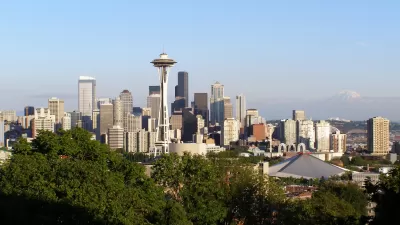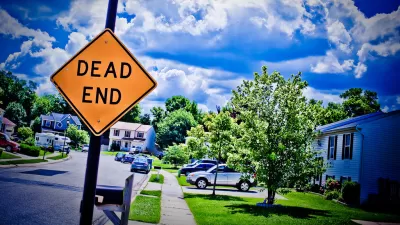The swift rejection of a proposal to upzone residential neighborhoods in Seattle inspired The Urbanist to evaluate the lessons of the episode. One takeaway: don't demonize single-family homeowners.

Robert Cruickshank provides a post-mortem on the attention-grabbing upzone proposal that was more dead than alive on arrival in Seattle:
"For many urbanists, it's been a journey of elation to despair. Just two weeks after the Housing Affordability and Livability Agenda (HALA) proposals were announced, several of its core recommendations have already been abandoned. Facing a growing backlash, Mayor Ed Murray announced he will no longer seek zoning changes in single-family neighborhoods."
Cruickshank blames the failure of the recommendations on a lack of public support for a process that lacked public participation. "The HALA committee finally made the plans public before there had been any meaningful effort to organize grassroots activism to support them—or to explain to Seattle residents why the zoning changes mattered," writes Cruickshank. Offering some advice for how to handle an opportunity like this the next time, and in other cities, Cruickshank says "it's time to treat zoning changes as what they truly are: a political debate." The article follows with more detail about how that lesson could have been applied in the example of the HALA recommendations.
Chuck Wolfe also recently wrote of some of the takeaways he'd identified from the episode, including a hopeful idea that the HALA report could result in a more inclusive city.
FULL STORY: WHY THE HALA SINGLE-FAMILY UPZONES DIED

Maui's Vacation Rental Debate Turns Ugly
Verbal attacks, misinformation campaigns and fistfights plague a high-stakes debate to convert thousands of vacation rentals into long-term housing.

Planetizen Federal Action Tracker
A weekly monitor of how Trump’s orders and actions are impacting planners and planning in America.

In Urban Planning, AI Prompting Could be the New Design Thinking
Creativity has long been key to great urban design. What if we see AI as our new creative partner?

Milwaukee Launches Vision Zero Plan
Seven years after the city signed its Complete Streets Policy, the city is doubling down on its efforts to eliminate traffic deaths.

Portland Raises Parking Fees to Pay for Street Maintenance
The city is struggling to bridge a massive budget gap at the Bureau of Transportation, which largely depleted its reserves during the Civd-19 pandemic.

Spokane Mayor Introduces Housing Reforms Package
Mayor Lisa Brown’s proposals include deferring or waiving some development fees to encourage more affordable housing development.
Urban Design for Planners 1: Software Tools
This six-course series explores essential urban design concepts using open source software and equips planners with the tools they need to participate fully in the urban design process.
Planning for Universal Design
Learn the tools for implementing Universal Design in planning regulations.
Gallatin County Department of Planning & Community Development
Heyer Gruel & Associates PA
JM Goldson LLC
City of Camden Redevelopment Agency
City of Astoria
Transportation Research & Education Center (TREC) at Portland State University
Jefferson Parish Government
Camden Redevelopment Agency
City of Claremont



























